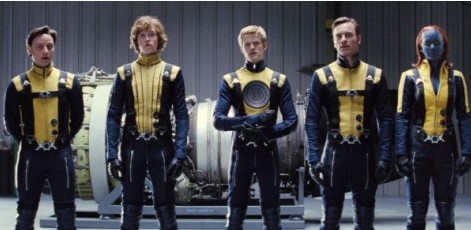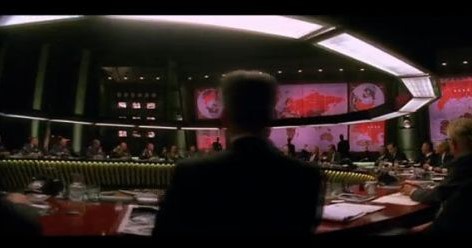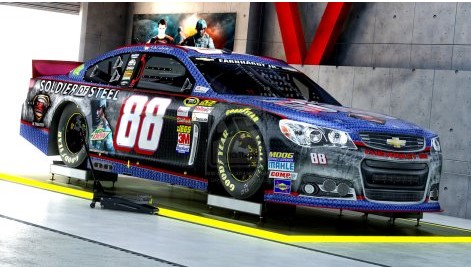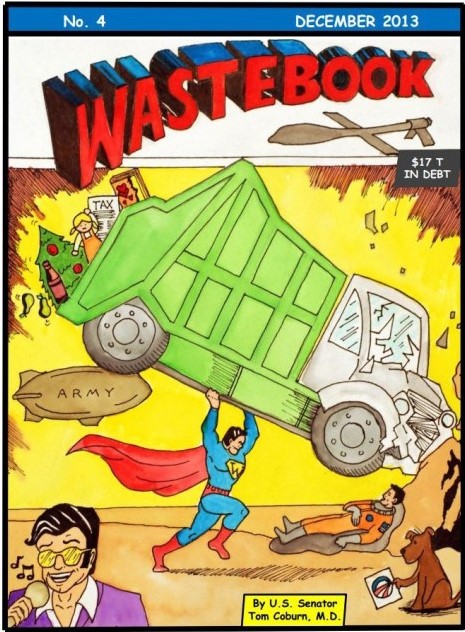
“Super-Soldiers”: The U.S. Military’s Controversial Sponsorship of Superhero Films
Movies that are based on superhero comics depict inspiring heroes fighting to save the world, and box office sales data indicates that these movies appeal to young men and woman in their teens and twenties. The United States Armed Forces noticed this interest in superhero movies from a key recruitment demographic, and the Army and Army National Guard sponsored two superhero films – X-Men: First Class (2011) and Man of Steel (2013). These sponsorships were intended to reach an audience of young people who might be inspired to serve their country in the military, but they sparked controversy about the military’s recruitment tactics and spending.
The military regularly partners with filmmakers to provide personnel and expensive military hardware for movie scenes – so long as the Pentagon approves of the military’s portrayal in the movie. Although critics argue that this practice allows the military to use a huge financial subsidy to censor scenes that portray the military in a negative manner, the military and Hollywood have collaborated on film projects for years, in blockbuster movies like Top Gun (1986), Transformers (2007), and Iron Man (2008).

But the United States Army’s official sponsorship of the film X-Men: First Class was unprecedented; the superhero movie was the first Hollywood film ever sponsored by the Army. As part of its sponsorship, the Army produced a commercial that compared real soldiers to fictional mutant superheroes, and invited viewers to visit the Army’s Facebook page to view exclusive content for the upcoming X-Men: First Class movie.
In an interview with The New York Times, Lt. General Benjamin C. Freakley, the commanding officer of the Army’s recruitment efforts, explained the Army’s rationale for the commercial: “The movie ‘is about young people who are ordinary doing extraordinary things,’ General Freakley said. ‘Ordinary people come in the Army and do extraordinary things every day.’”
In the interview, Freakley noted that only “9 percent of the population is propensed toward military service” and that the Army was attempting to engage with potential recruits using social media.

The commercial was released in 2011, during the last year of the Iraq War, a politically divisive military conflict that began in 2003, in which over 4,000 U.S. military personal would be killed, and over 32,000 wounded. Critics of the “Army Strong” X-Men: First Class commercial suggested that it minimalized representation of the dangers real soldiers faced. In Salon, author David Sirota wrote, “Obviously, the ads seek to obscure the simple truism that being a soldier is very dangerous, as evidenced by the tens of thousands of American troops killed or wounded in our state of permanent war (or, in the Pentagon’s Orwellian terms, this era of ‘persistent conflict’).”
At comics news site Bleeding Cool, comics journalist Rich Johnson questioned whether the film had an appropriate recruitment message for the Army: “In X-Men: First Class, the US armed forces are portrayed as loyal, dedicated but ultimately mindless autonomatons [sic], doing the bidding of politicians no matter what the consequences, taking the world to the brink of nuclear war, and attacking mutants. And at one point there is a comparison between their actions and the Nazi soldier excuse ‘I was only following orders’. There is a rather heavy handed scene which hammers this home.”

What impact did the superhero film have on the Army’s recruitment efforts? The direct recruitment effect of the Army’s sponsorship of X-Men: First Class is unclear. However, the Army did meet its recruitment goals for fiscal years 2011 and 2012.
The Army National Guard’s sponsorship of the film Man of Steel included two theater commercials filmed by Man of Steel director Zack Snyder.
The Army National Guard’s “Soldier of Steel” recruitment campaign also included a downloadable video game, posters, ads in magazines, a NASCAR sponsorship, and exclusive social media film clips, as well as workout routine videos developed by Mark Twight, the fitness trainer for the Man of Steel film.

In an interview with Mother Jones, Maj. Greg Galligan, an officer in the Army National Guard’s advertising department, stated that the Army National Guard was projecting “an estimated 366 million impressions delivered through the ‘Soldier of Steel’ campaign…The military’s values align with Superman’s creed [so] this just made sense.” In the interview, Galligan confirmed that the military’s sponsorship was intended to recruit younger moviegoers: “Our research demonstrates that movie theaters are a great venue for reaching our key recruiting demographic of 17-24 year olds.”

The “Soldier of Steel” campaign cost $10 million, and was criticized by Senator Tom Coburn (R-Okla.) in Wastebook 2013, his annual report on wasteful government spending. Coburn chastised the Army National Guard for spending money to sponsor a blockbuster movie while sequestration (automatic spending cuts passed by Congress in 2011) was forcing the military to cut expenses and reduce its personnel: “This money could have been better spent on the real life supermen and superwomen in the Army National Guard who are courageously risking all in the fight for truth, justice, and the American way.”

Despite the “Soldier of Steel” campaign, the Army National Guard did not meet its recruitment goals in 2013. The Army News Service reported that the Army National Guard fell short of both its recruitment and retention goals.
Although the military will likely continue to partner with Hollywood on blockbuster superhero movies by providing military hardware and personnel, given the military’s current budget constraints and the past controversies of the military’s previous sponsorships, it remains to be seen whether the military will ever again sponsor a superhero film.








